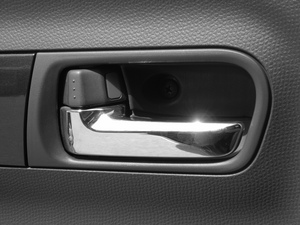If you were seriously injured, remember that it is crucial to choose the right law firm to represent your interests. We have been doing this for more than three decades, and have the resources you need to challenge any opponent.
South Carolina Supreme Court Allows Nisi Additur in Auto Product Liability Case
In some states, trial courts have the power to increase an inadequate jury verdict or reduce an excessive verdict. The law varies somewhat by state, but generally, the court may not change the jury’s verdict without a strong reason to do so.
Table of Contents
Details Surrounding Riley v. Ford Motor Company

The South Carolina Supreme Court recently reviewed a product liability case in which the trial judge had added $600,000 to the amount awarded by the jury. In Riley v. Ford Motor Company, a county sheriff was killed in an automobile accident when a 16-year-old driver pulled out in front of him. The sheriff swerved his Ford F-150 in an effort to avoid hitting the other vehicle but was unable to avoid a collision. The Ford’s door swung open, and the sheriff was ejected from the truck. He died from his injuries.
Claim Against The Other Driver
The sheriff’s widow filed suit against both the other driver and Ford. She alleged a design defect in the door-latch system. She settled with the other driver, agreeing to allocate $5,000 to the wrongful death claim and $20,000 to the survival claim. The court approved the settlement, and the claims against the driver were dismissed.
Product Liability Claim Against Ford
The product liability case against Ford went to trial. The plaintiff dismissed the survival claim during the trial, but the wrongful death claim went to the jury. The jury awarded $300,000 in actual damages. The jury did find that Ford’s conduct was willful, wanton, or reckless, but it did not award punitive damages to the plaintiff.
Plaintiff Moves For New Trial
The plaintiff moved for a new trial nisi additur, and the court awarded an additional $600,000. The defendant moved for judgment notwithstanding the verdict and alternatively for an offset of the $25,000 settlement with the driver. The trial court denied both defense motions.
The Defendant Appeals
The defendant appealed, and the court of appeals reversed. The appeals court found an error in the denial of the motion for setoff and in the new trial nisi additur. The court of appeals reallocated the settlement proceeds, apportioning $5,000 to the survival claim and $20,000 to the wrongful death claim. The court of appeals did not examine the amounts awarded but instead focused on the percentages. The appeals court held that the defendant was entitled to the $20,000 setoff.
Judge Grants a New Trial
The South Carolina Supreme Court granted the plaintiff’s petition for a writ of certiorari. The state supreme court’s opinion noted that the plaintiff had presented evidence of more than $228,000 in economic damages. There were several witnesses who testified regarding noneconomic damages, to the extent the trial judge found the evidence to be compelling and pervasive enough that he ruled it had become cumulative. In granting the motion for a new trial nisi additur, the judge set out the “uncontested and compelling” evidence and testimony that formed the basis for his decision.
Reversal of the Court of Appeals’ Decision
The state supreme court found that the appeals court had reviewed the issue de novo when it should have used an abuse of discretion standard. The appeals court had acknowledged that the award was not much more than the economic damages and that the defendant had not actively contested damages, but it found no compelling reason for the trial court to grant the plaintiff’s motion. The state supreme court pointed out that the appeals court’s apparent belief that a nisi additur was not appropriate if the jury had awarded any noneconomic damages was incorrect. The supreme court found no abuse of discretion by the trial court and reversed the court of appeals’ decision.
Plaintiff Is Awarded a Damage Claim
As to the setoff, the plaintiff’s brief conceded that the defendant was entitled to a setoff in the amount of the settlement apportioned to the wrongful death claim. The supreme court found that the court of appeals erred when it reapportioned the settlement. The supreme court looked at the totality of the circumstances, finding that the settlement amount was reasonable and that there had been evidence of conscious pain and suffering. The supreme court found that a settlement apportionment is not improper just because it benefits the plaintiff. In this case, the defendant had not argued that $20,000 was an unreasonable amount for the survival claim, but instead, it focused on the percentages allocated to each claim. The supreme court reversed the appeals court and held that the defendant was entitled to a $5,000 setoff.
The Importance of Securing Experienced Legal Counsel
In this case, the plaintiff presented strong evidence to support the damages claim. The evidence was sufficient to persuade not only the judge but also the state supreme court that the jury’s award was inadequate. Our experienced product liability attorneys know the importance of presenting evidence as to damages, even when the defendant is not actively challenging that aspect of the claim.
The Ferraro Law Firm handles claims resulting from defective products or dangerous pharmaceuticals. Call (888) 554-2030 for a free and confidential consultation. Offices in Miami and Washington, D.C.
